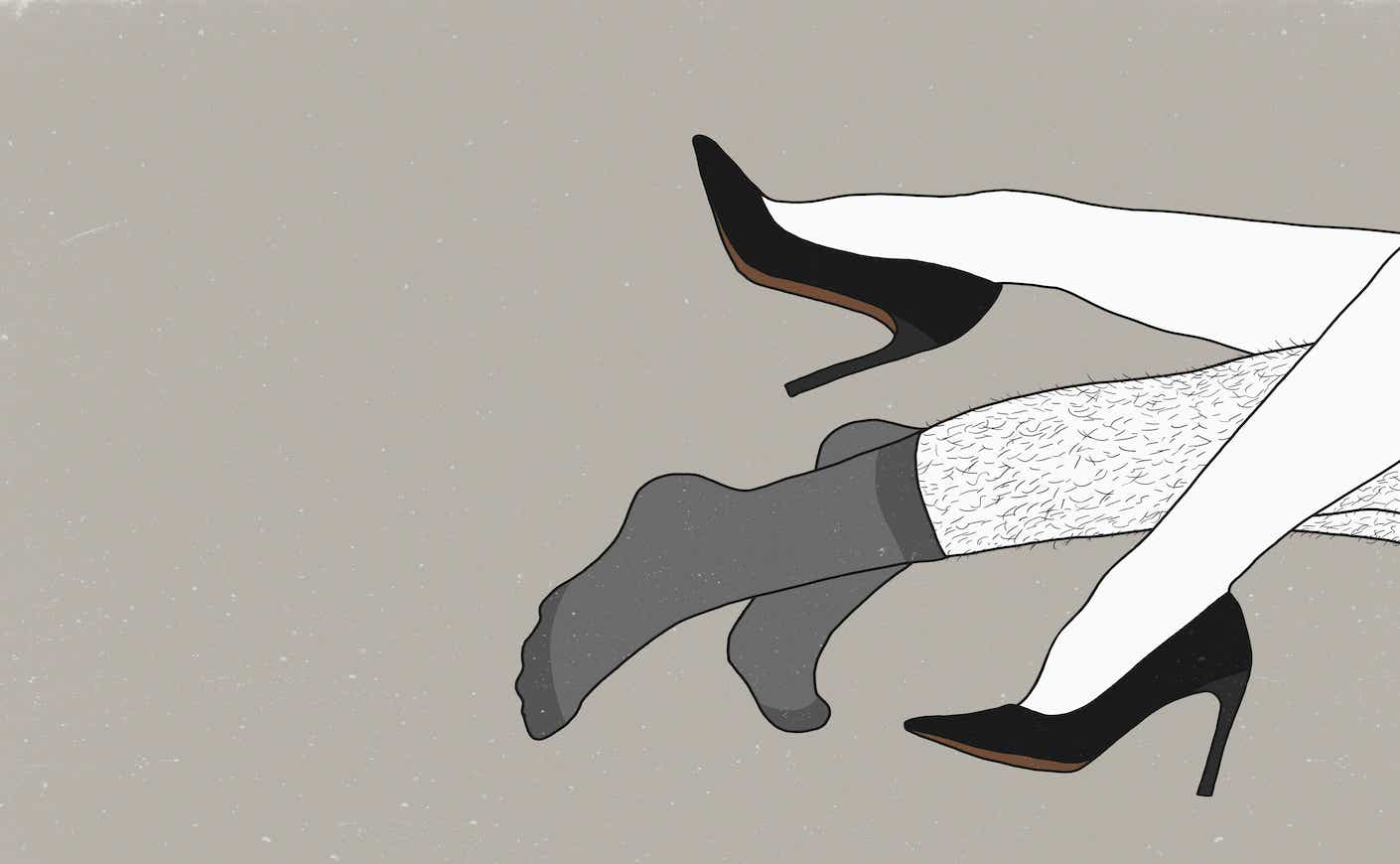In our youth-obsessed society, it may be impossible to believe that growing old and gaining wisdom were once celebrated. Although westerners have many fears about menopause and impotence signaling a decline of health, vitality, and sexuality, in other cultures (and in ancient ones) this was a time for increased prestige, power, and self-esteem. The crone, or wise older woman archetype, had powers of healing and intuition; she could connect more consciously to her spiritual and sexual energy. I was looking forward to turning 40 from the time I was 13. I felt it was the age when I would officially become a woman, and I’m looking even more forward to being a super-powerful, magnetic 60-year-old who is having the best sex of her life.
The following are some facts and thoughts on aging that can be applied however you identify. I’m using binary (male/female) language here, as the research that my conclusions were taken from was based on historical accounts and old models of sexual health and data. Remember, the medical system still has a lot of catching up to do when it comes to sexual and gender identity.
Menopause is a life transition that begins when people who menstruate stop having menstrual cycles. This is a process, not a single event. Over a two- to ten-year period, they will be dealing with sexuality and menopausal changes. It can begin between the ages of 48 and 52 but also on either side of this range. Perimenopause can begin in the 30s — this is not often talked about — and is totally normal if that is the way your body functions. A doctor can best advise if you are experiencing menopause or perimenopause.
During this time, as ovarian hormones decline, symptoms can include hot flashes, night sweats, depression, irritability, sleeplessness, concentration problems, mood swings, and breast tenderness. Also to look forward to (joking) are changes in the vagina, the progressive loss of pubic hair, and the lining of the vulva becoming thinner and losing elasticity. This can cause pain, especially during intercourse. Here’s where lubrication becomes incredibly important. If it is legal in your area, a cannabis-based lube may do wonders.
Aging, no matter your gender, includes the difficult psychological task of accepting that there will be less time ahead, accompanied by undesired physiological changes. For postmenopausal women, there is also the acknowledgment that child-bearing years have come to an end. Want to know the silver lining of menopause? Women tend to experience the height of their sexuality around this time. As menstruation starts to diminish, libido may be stronger than ever. The famed actress, screenwriter, producer, playwright, and self-styled femme fatale Mae West apparently had multiple lovers and an endless lust for sex up until the day she died at 87.
The flip side of this is more common for men. Typically, around the same age as women are experiencing menopause, men are masturbating less, having fewer sexual fantasies, and experiencing more issues with erectile dysfunction, or ED. It is estimated that about 55 percent of 55-year-old men have ED; after age 70, about 70 percent of men; and so on. As men age, ejaculation doesn’t occur each time they orgasm, and orgasm may not occur at all.
Culturally, male sexuality is linked to performance and intercourse. If performance requires an erection, aging plus the possibility of impotence equals terror. This is a masculinity paradigm we need to shatter, as it holds men to impossible ideals and denies them the ability to expand their experience of pleasure as they age.
Life and humans are kinetic, not static. We are constantly changing, experiencing both losses and expansion. When it comes to aging and death — transitions that every single human will go through — it seems the entire Western culture, including the media, is built around avoiding it. As much as we are culturally uncomfortable speaking about sex, we really don’t want to accept that we will all get older and eventually transition out of our bodies.
There is a prevalent social message that sex is for the young. One of the main philosophies of my book, Sex, Health & Consciousness, is that sexuality is not only about penetration, an act that requires a partner, or even the goal of an orgasm. We tend to disassociate our sexuality from our mind and soul — putting sex into a narrow box that doesn’t allow us to fully express ourselves or tap into the awesome power of sexuality as a source of energy and creativity.
As we evolve, so does our relationship with our bodies and sensuality. Regardless of our stage in life, most of us require touch and close relationships with other humans. As we get older, we may explore different methods of achieving physical connection; we may need more mental stimulation or more time to become aroused. If we’re aging with someone in a relationship, we may be transitioning from lust to love — or our sex may be hotter than ever.
This is an excerpt from Sex, Health & Consciousness by Liz Goldwyn published by Sounds True. Copyright © 2022.
Liz Goldwyn is an author, filmmaker, and the founder of The Sex Ed, an online community and podcast dedicated to sexual well-being. She has lectured at museums and universities including UCLA, Yale, Fashion Institute of Technology, the Huntington Library, and the Museum of Fine Arts Boston. She has been featured in Vogue, The New York Times, New York magazine, and ELLE. Visit her website for a schedule of upcoming events.













